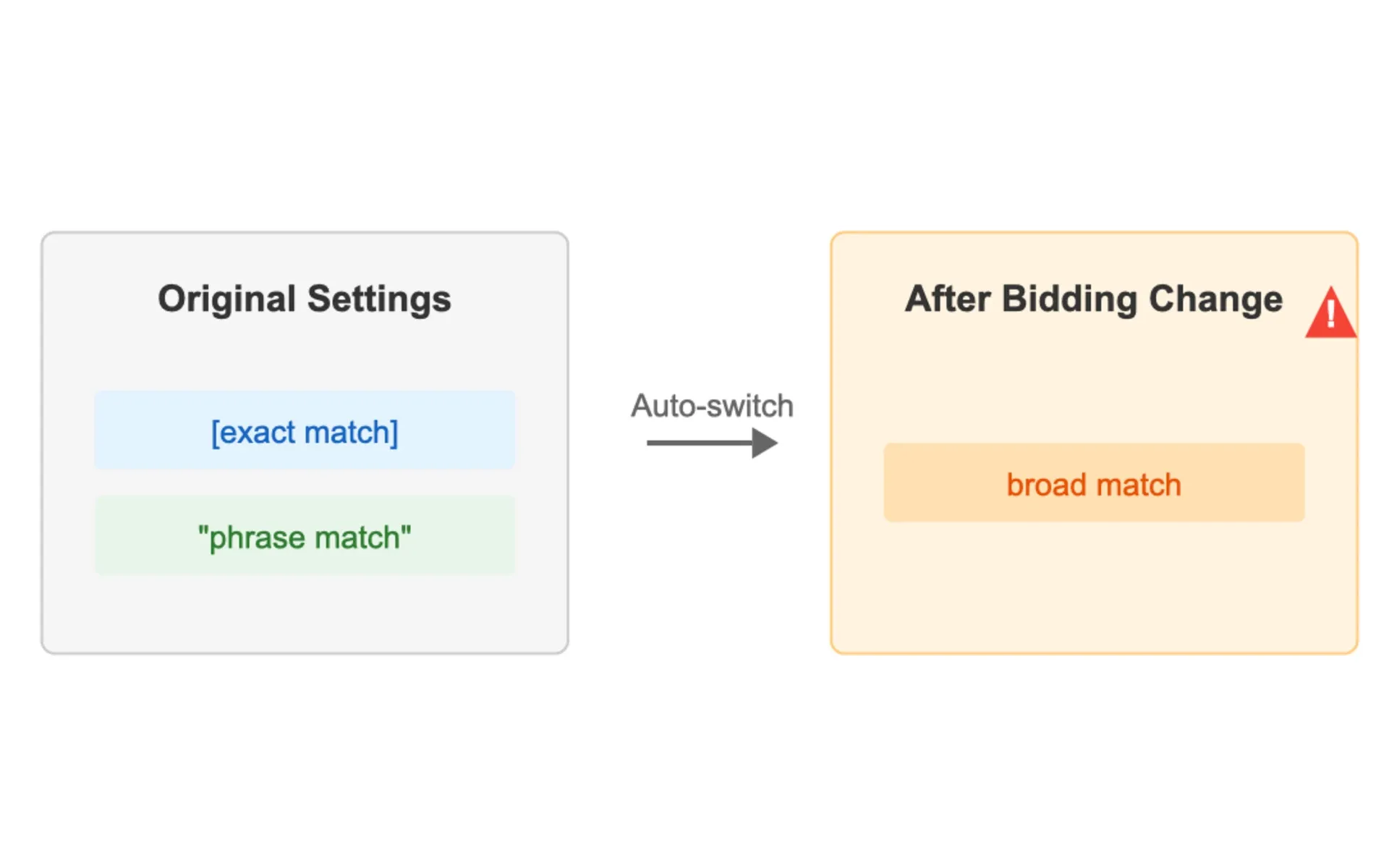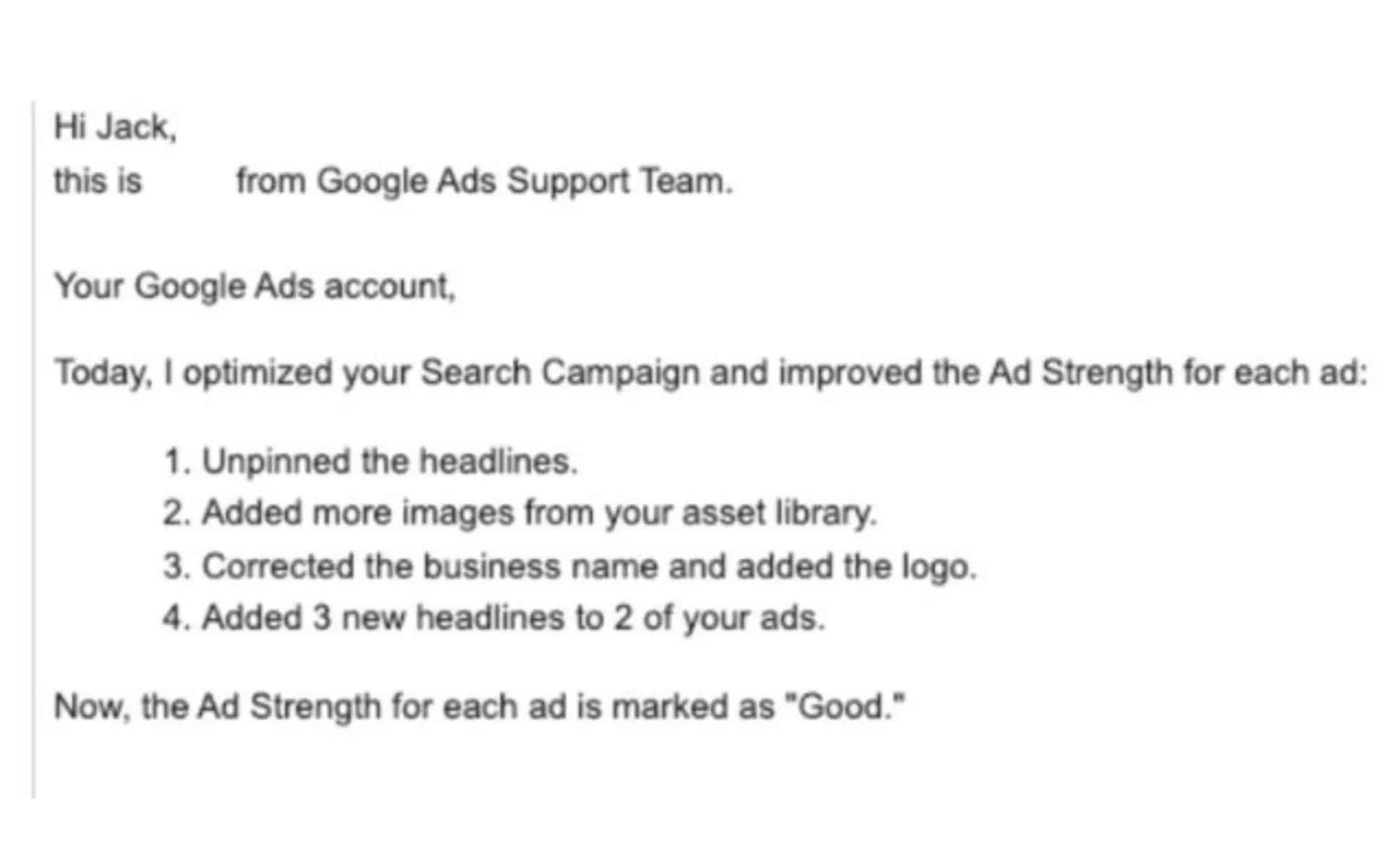Google Ads bidding switch silently enables broad match keywords, raising concerns
Advertisers report unexpected broad match conversions when switching to conversion-based bidding in Google Ads campaigns.

On December 26, 2024, Google confirmed they are investigating reports of campaigns automatically switching to broad match keywords when advertisers change their bidding strategies. The issue, initially identified by industry expert Navah Hopkins, affects advertisers transitioning from non-conversion to conversion-based bidding strategies in their Google Ads campaigns.
According to Hopkins, Brand Evangelist at Optmyzr, the system automatically converts existing phrase and exact match keywords to broad match without notifying advertisers. "When you switch from non-conversion based bidding to a conversion based bidding strategy, Google automatically toggles Broad Match campaigns on," Hopkins stated in her LinkedIn post.
The technical implications of this change are significant. In Google Ads, keyword match types control how closely a search query needs to match the keyword for the ad to appear. While exact match limits ads to searches that match the keyword precisely, and phrase match maintains the word order while allowing for variations, broad match significantly expands the range of potential search queries that could trigger an advertisement.
Ginny Marvin, Google Ads Liaison, addressed the issue on the social media platform LinkedIn, stating that "this is not the expected behavior when switching from manual bidding to a Smart Bidding strategy." The company's technical teams are currently investigating the cause of these unauthorized match type changes.
Industry professionals have raised concerns about the financial implications. Harrison Jack Hepp, founder of Industrious Marketing, questioned the technical specifics of the implementation, asking whether the system pauses or removes the original keywords during the conversion process. This uncertainty compounds the complexity of campaign management and performance tracking.
The timing of this discovery coincides with the end-of-year period when many advertisers review and adjust their campaign strategies. The issue appears to be selective in its impact, with Hopkins later clarifying that not all accounts are affected, suggesting a potential technical malfunction rather than an intentional feature deployment.

Christi Olson, Senior Director of Digital Marketing, highlighted the broader implications for campaign efficiency, noting historical patterns in platform behavior that prioritize revenue generation over advertising effectiveness. This perspective underscores the tension between platform optimization and advertiser control.
Melissa Mackey, a digital marketing professional, emphasized the potential disruption to campaign performance, particularly noting the challenges in maintaining efficient ad spend when broad match keywords unexpectedly replace more precise targeting options.
The technical community has begun implementing verification processes to protect campaign integrity. Recommended precautions include regular audits of keyword match types after any bidding strategy changes and careful monitoring of campaign performance metrics to identify unexpected variations in traffic patterns or spend levels.
For advertisers managing active campaigns, the situation necessitates increased vigilance. Campaign managers are advised to verify their keyword match types following any modifications to bidding strategies, as overlooking these automatic changes could result in significant deviations from intended targeting parameters.
Google's investigation into this technical issue remains ongoing. The company has not provided a timeline for resolution or clarification on whether this behavior represents a bug in their system or an unintended consequence of recent platform updates.
This development emerges against the backdrop of increasing automation in digital advertising platforms, where the balance between algorithmic optimization and advertiser control continues to evolve. The incident highlights the critical importance of maintaining transparent control mechanisms in automated advertising systems.
Industry experts recommend that advertisers maintain detailed documentation of their campaign settings and implement regular auditing procedures to ensure campaign parameters align with their intended strategies. This approach helps mitigate potential risks associated with unexpected platform behaviors while maintaining campaign effectiveness.


